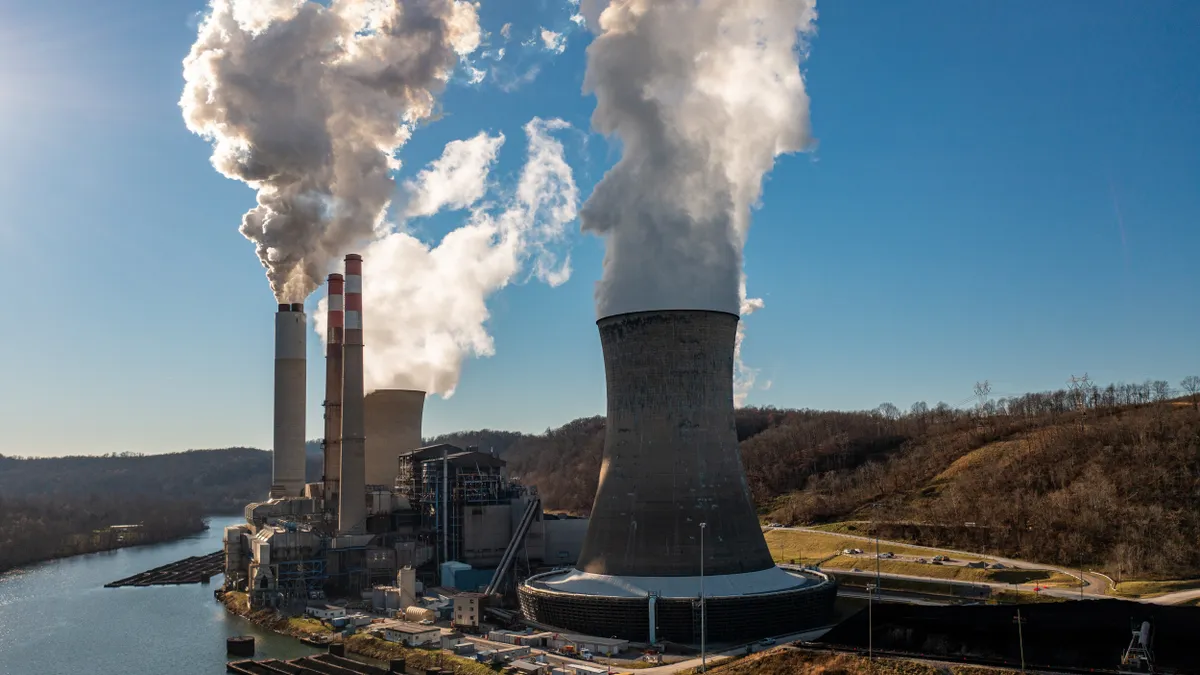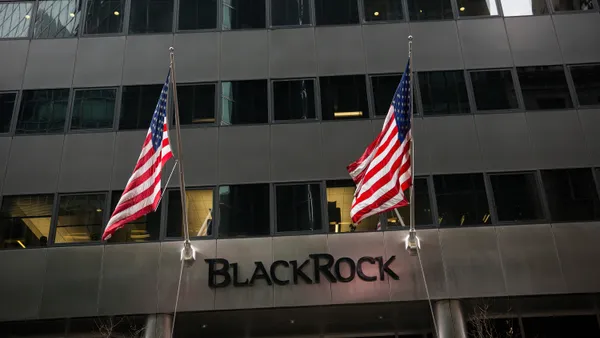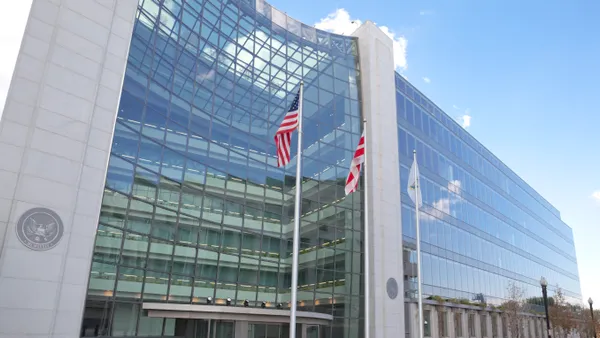Dive Brief:
- West Virginia Treasurer Riley Moore placed Citi, TD, HSBC and Northern Trust on the state’s restricted list Monday, deeming the banks to be boycotting fossil fuels.
- The state warned the banks in February that they were at risk of losing eligibility for state banking services contracts if they failed to issue a response to the treasurer.
- BMO and Fifth Third, which also received warnings, were not added to the list Monday after they demonstrated to Moore they aren’t engaged in such a boycott, according to the release.
Dive Insight:
Monday’s development is the latest effort by Republican-led states to admonish banks over their environmental, social and governance policies. BlackRock, Goldman Sachs, JPMorgan Chase, Morgan Stanley and Wells Fargo were put on West Virginia’s restricted list when it was created in 2022.
BMO avoided being added to the list by removing “an offending policy” from its website after receiving the warning from Moore’s office, the release noted. The bank also demonstrated that other existing policies had been revoked.
Following the February warning, BMO’s general counsel sent a letter notifying Moore’s office the bank pulled a statement outlining its lending restrictions to the coal industry after BMO made policy changes last November, Bloomberg reported.
Even though the bank took down the statement, BMO’s approach hasn’t changed, the wire service reported, citing an unnamed source. With regard to the coal industry, BMO continues to conduct individual risk-based assessments of companies.
“Our policies represent a comprehensive, risk-based approach that underscores our commitment to sound and prudent business practices while complying with the laws and regulations of the markets we serve,” a BMO spokesperson said in a Tuesday email.
Moore’s announcement didn’t specify what Fifth Third did to avoid being added to the list, other than to note the bank worked with his office to clarify its policies.
A Fifth Third spokesperson said the bank considers each customer on an individual basis. “We don’t prohibit or boycott any business or industry engaged in legal activities,” the spokesperson said in a Tuesday email. “Our diligence process for new and existing customers focuses on risk appetite (theirs and ours), and our ability to meet a customer’s complex and varied needs to operate their business.”
Citi, meanwhile, is “disappointed” by Moore’s decision, “and we respectfully disagree with the designation,” a spokesperson for the bank said in a Tuesday email.
“Citi is not engaged in a boycott of energy companies as evidenced by the fact that we continue to lend to these companies and have substantial credit exposure to the industry,” the spokesperson said. “We believe our policies are consistent with our regulatory requirements regarding risk management as well as with West Virginia law.”
HSBC seeks to work with energy companies rather than boycott them, a bank spokesperson said Tuesday.
“Our policies anticipate that we will continue to provide corporate lending and capital markets transaction support to energy-based customers to both maintain supplies as well as support an orderly and just transition that helps with the creation of new jobs,” an HSBC spokesperson said in a Tuesday email. The bank is supportive of its energy company clients throughout the U.S., the spokesperson added.
Chicago-based Northern Trust doesn’t restrict or prohibit investment in fossil fuel-based energy companies, a spokesperson said Tuesday.
The financial institution “maintains approximately $52 billion (as of Feb. 2024) in investment exposure to companies in the traditional energy sector and companies with commercial activities relevant to fossil fuel production and supply,” and “provides services for managing oil, gas and other fossil fuels for clients in our Wealth Management business,” the spokesperson said in a Tuesday email.
West Virginia’s list features financial institutions that have publicly said they will turn down, end or limit their business with coal, oil or natural gas companies without a reasonable business purpose, Moore’s office said in Monday’s release.
“We cannot allow institutions that seek to destroy our state’s critical energy industries and the economic activity they generate to also profit from handling the very taxpayer dollars they seek to diminish,” Moore said. “My action today represents our continued commitment to protect state funds from furthering these politically motivated, subjective ESG policies that attempt to cut off financing for our coal, oil and natural gas industries and harm our state.”
Texas, Kentucky, Oklahoma, Florida, Louisiana and Missouri have also passed similar legislation banning business with banks or institutions deemed to “boycott” the fossil fuel industry.
TD did not immediately respond to requests for comment.













